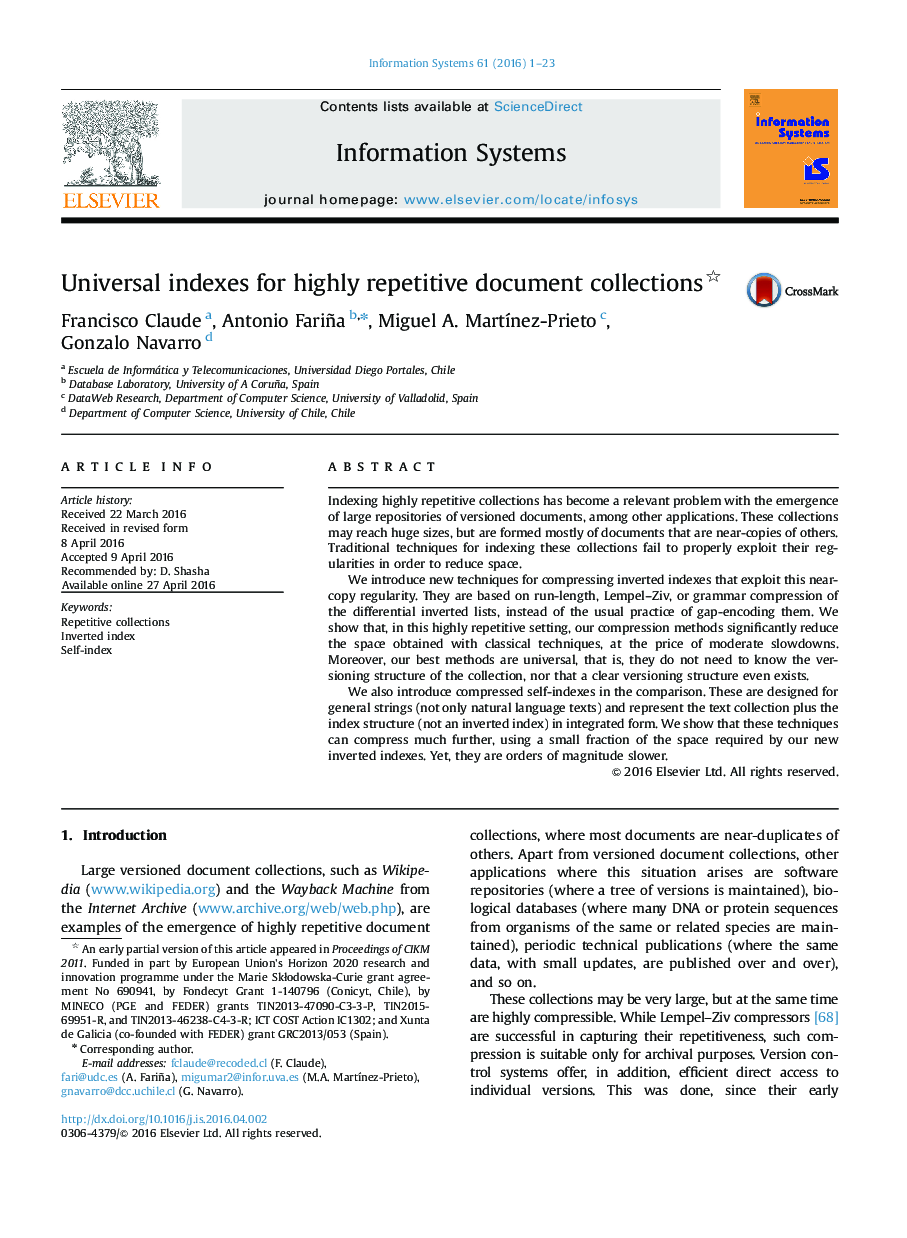| Article ID | Journal | Published Year | Pages | File Type |
|---|---|---|---|---|
| 397242 | Information Systems | 2016 | 23 Pages |
•We study how existing indexes perform in highly repetitive document collections.•We design new inverted index variants for this kind of collections.•We implement, adapt, and/or tune existing self-indexes for this case.•We obtain significant space reductions, at a moderate price in query time.•We obtain larger reductions on self-indexes, but at a higher price in query time.
Indexing highly repetitive collections has become a relevant problem with the emergence of large repositories of versioned documents, among other applications. These collections may reach huge sizes, but are formed mostly of documents that are near-copies of others. Traditional techniques for indexing these collections fail to properly exploit their regularities in order to reduce space.We introduce new techniques for compressing inverted indexes that exploit this near-copy regularity. They are based on run-length, Lempel–Ziv, or grammar compression of the differential inverted lists, instead of the usual practice of gap-encoding them. We show that, in this highly repetitive setting, our compression methods significantly reduce the space obtained with classical techniques, at the price of moderate slowdowns. Moreover, our best methods are universal, that is, they do not need to know the versioning structure of the collection, nor that a clear versioning structure even exists.We also introduce compressed self-indexes in the comparison. These are designed for general strings (not only natural language texts) and represent the text collection plus the index structure (not an inverted index) in integrated form. We show that these techniques can compress much further, using a small fraction of the space required by our new inverted indexes. Yet, they are orders of magnitude slower.
